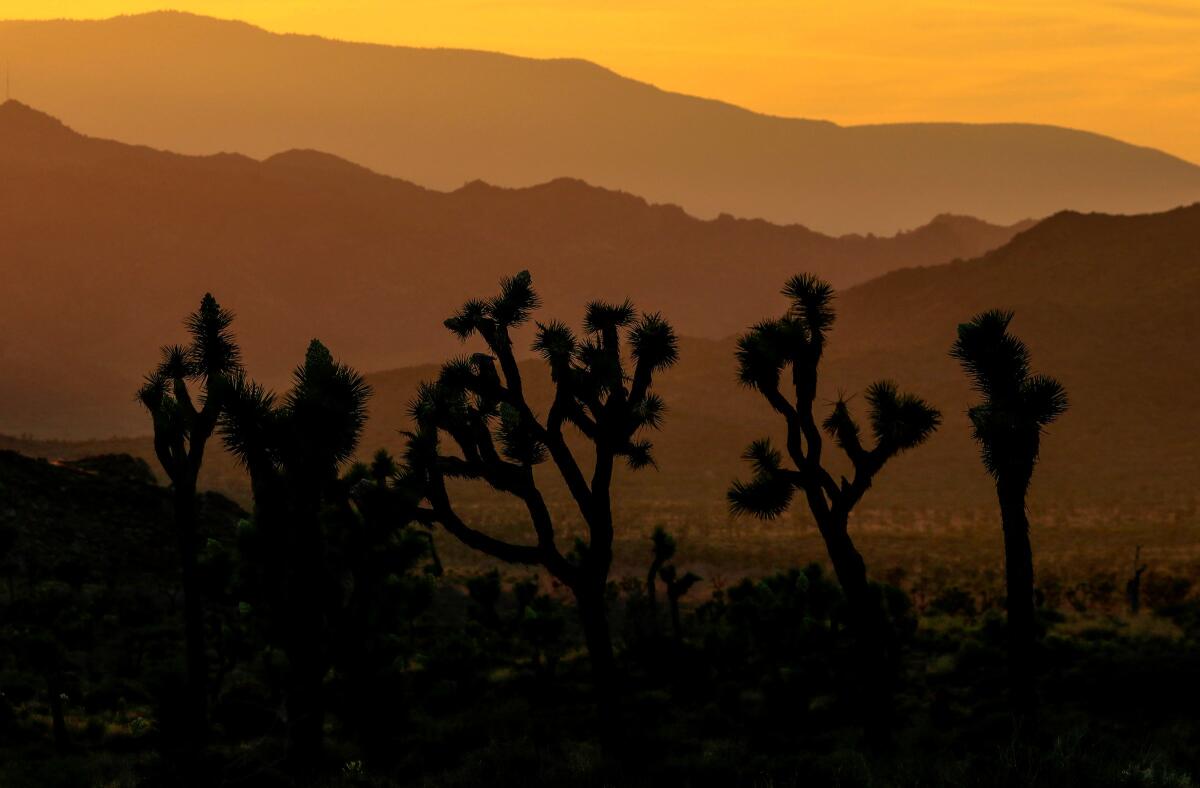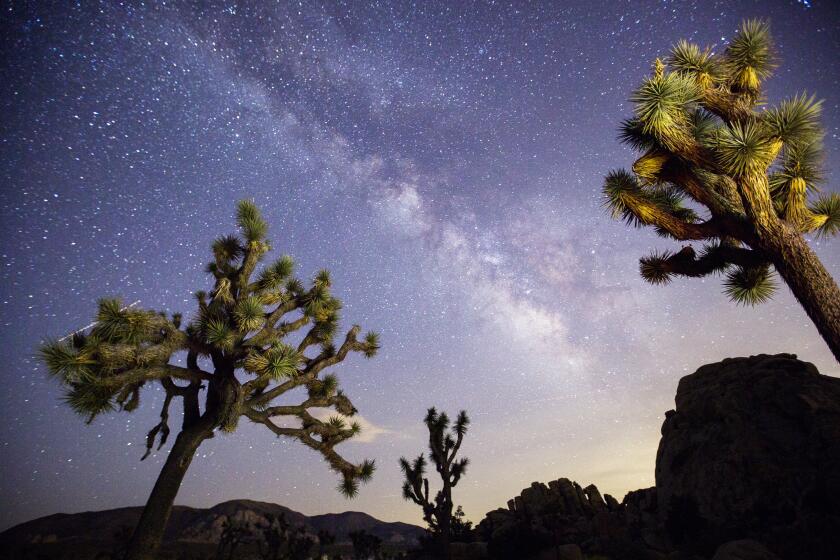Stealing a Joshua tree could now cost you $20,000 in San Bernardino County

- Share via
Illegally removing a Joshua tree in San Bernardino County could now mean a five-figure fine.
The San Bernardino County Board of Supervisors approved a new ordinance Tuesday that increases the fine for unlawfully taking a tree to up to $20,000 for a third conviction and up to six months in jail.
Fines for a first offense were increased up to $5,000 and a second conviction could now cost offenders up to $10,000.
Previously, unlawfully removing a tree, a misdemeanor, was punishable by a $1,000 fine.
“San Bernardino County finds that the western Joshua tree provides a significant psychological and tangible benefit for both residents and visitors to the County,” the board wrote in its resolution.
The trees “are deserving of additional management regulation to protect and preserve the western Joshua Tree from ... hazards.”
The move comes after state biologists in April recommended against designating the iconic plant as threatened with extinction.
State biologists recommend against listing the western Joshua tree as endangered due to climate change, saying the move would be premature.
The California Fish and Game Commission is due to make a ruling next month on whether to list the tree as endangered under the California Endangered Species Act.
If the commission declines to list the tree as endangered, protection of the tree will fall to local jurisdictions, like San Bernardino County.
About 40% of the western Joshua tree’s range is on private land in areas such as Palmdale, Lancaster, Hesperia, Victorville and Yucca Valley.
Biologists wrote that the Joshua tree is “abundant and widespread,” lowering the threat of extinction in the immediate future.
Advocates, however, feel the need for protection is more pressing.
“Current domestic and global warming trends cast doubt on the tree’s future survival,” Brendan Cummings, a resident of the community of Joshua Tree in San Bernardino County and conservation director for the Center for Biological Diversity, said in April. “The species will likely be close to extinction in California by century’s end.”
“We should take care of these trees now, before we have fewer options to work with,” Jeremy Yoder, an evolutionary geneticist at Cal State Northridge, said last month.
More to Read
Sign up for Essential California
The most important California stories and recommendations in your inbox every morning.
You may occasionally receive promotional content from the Los Angeles Times.















